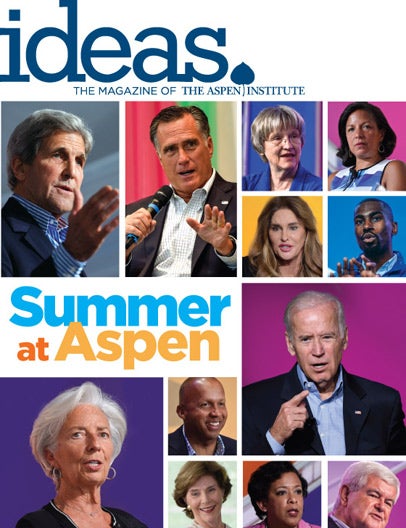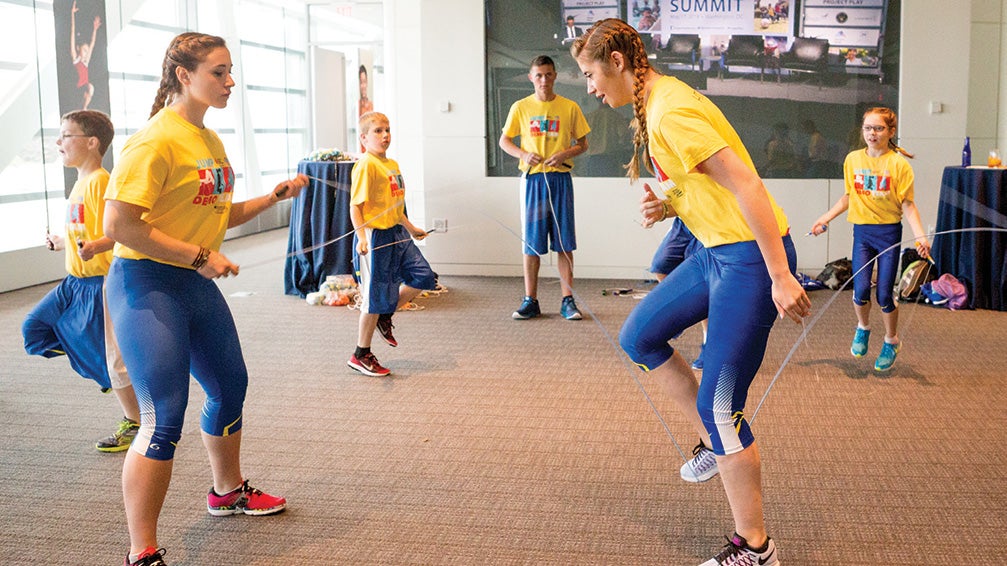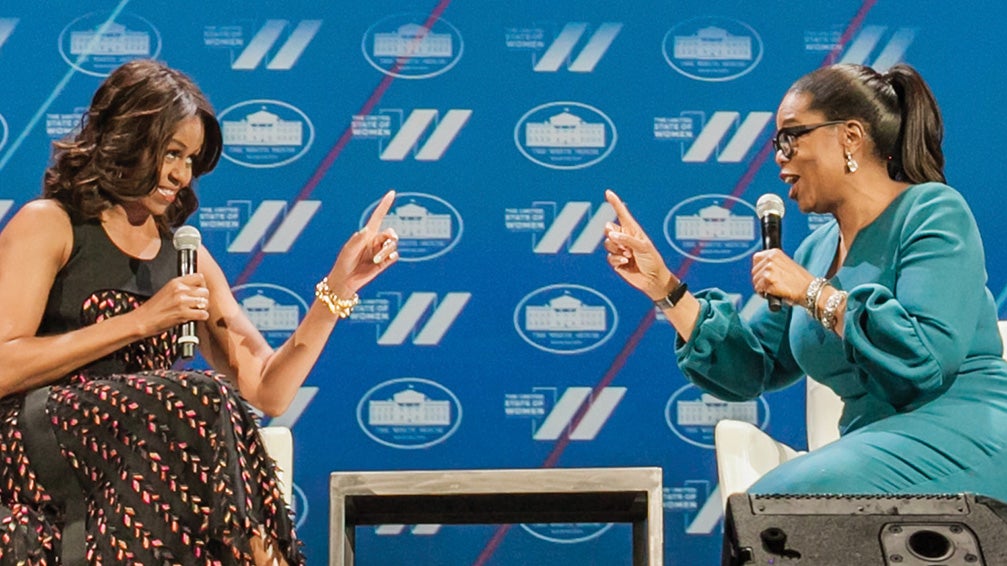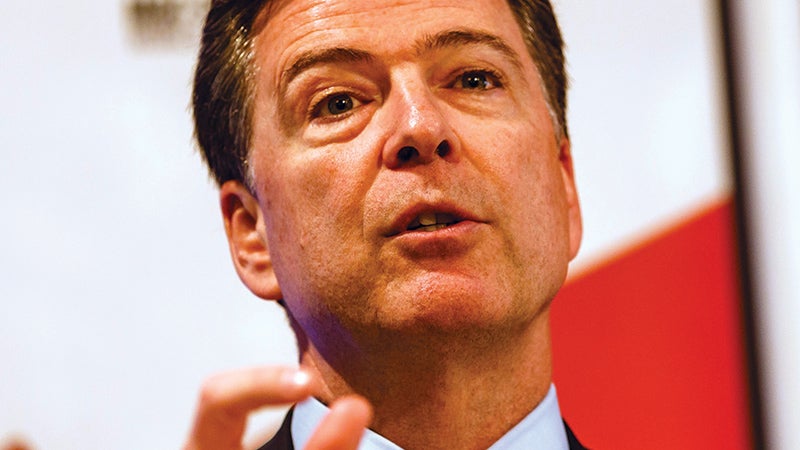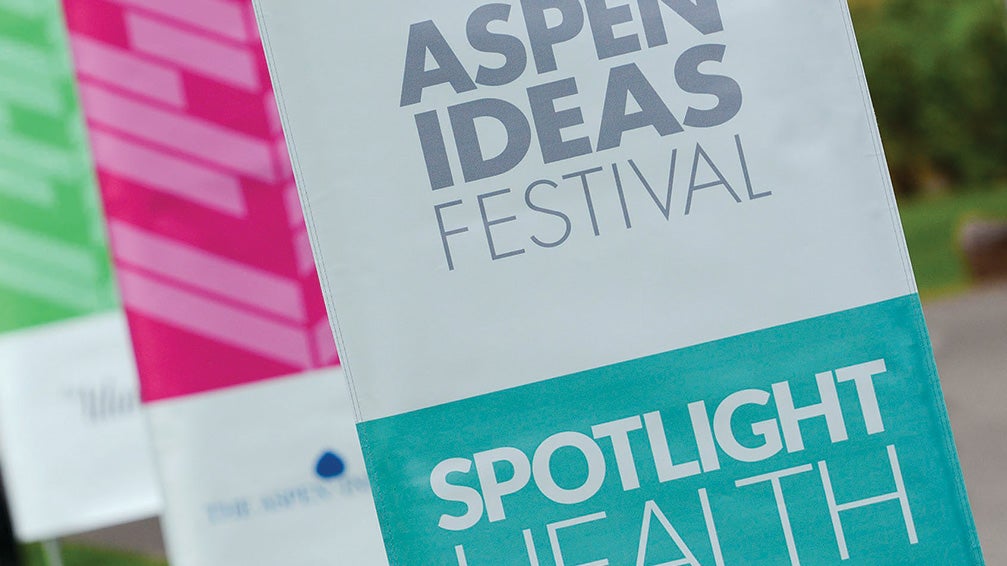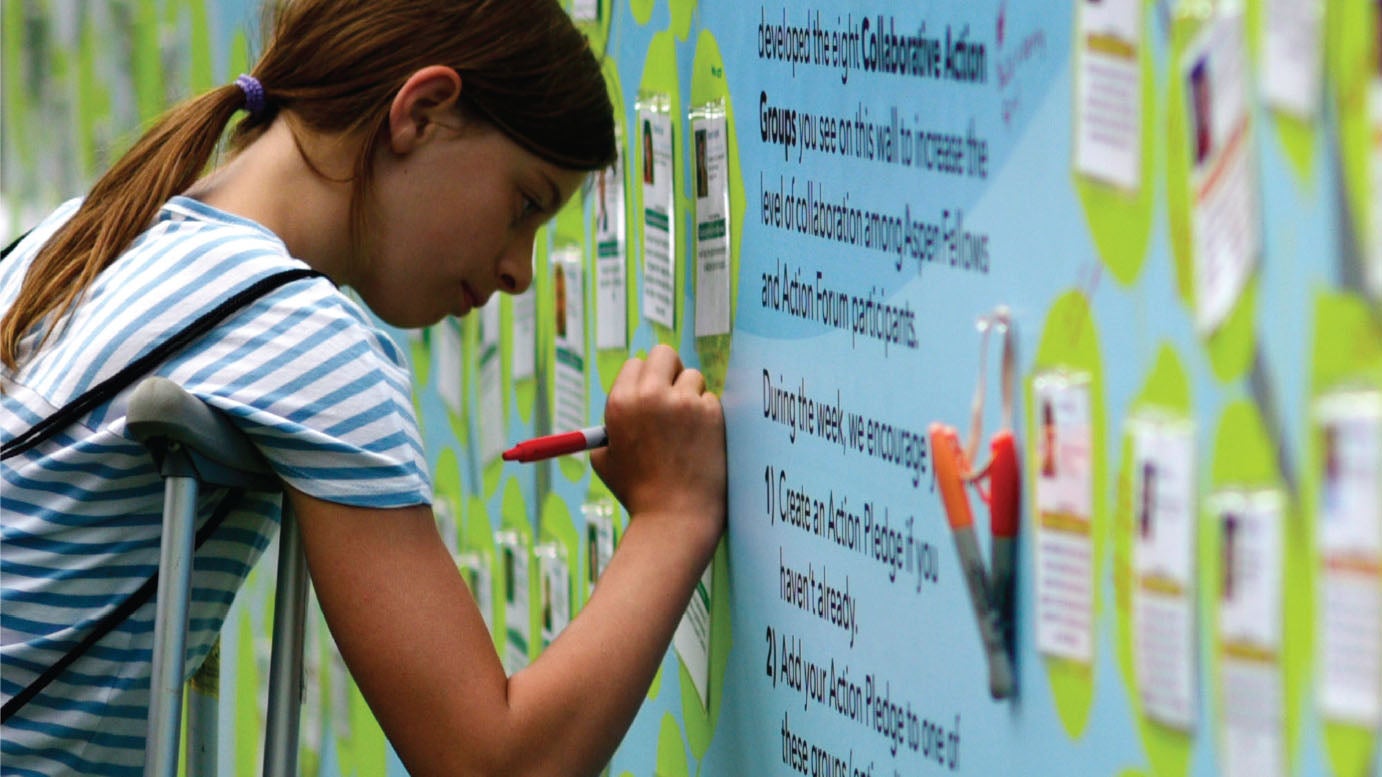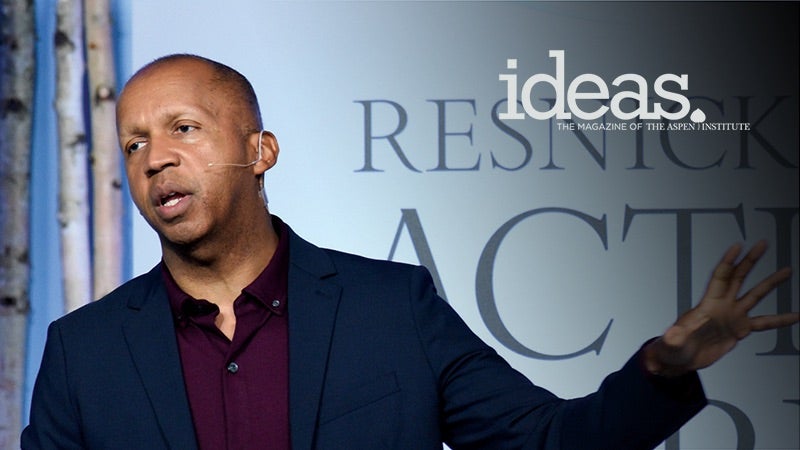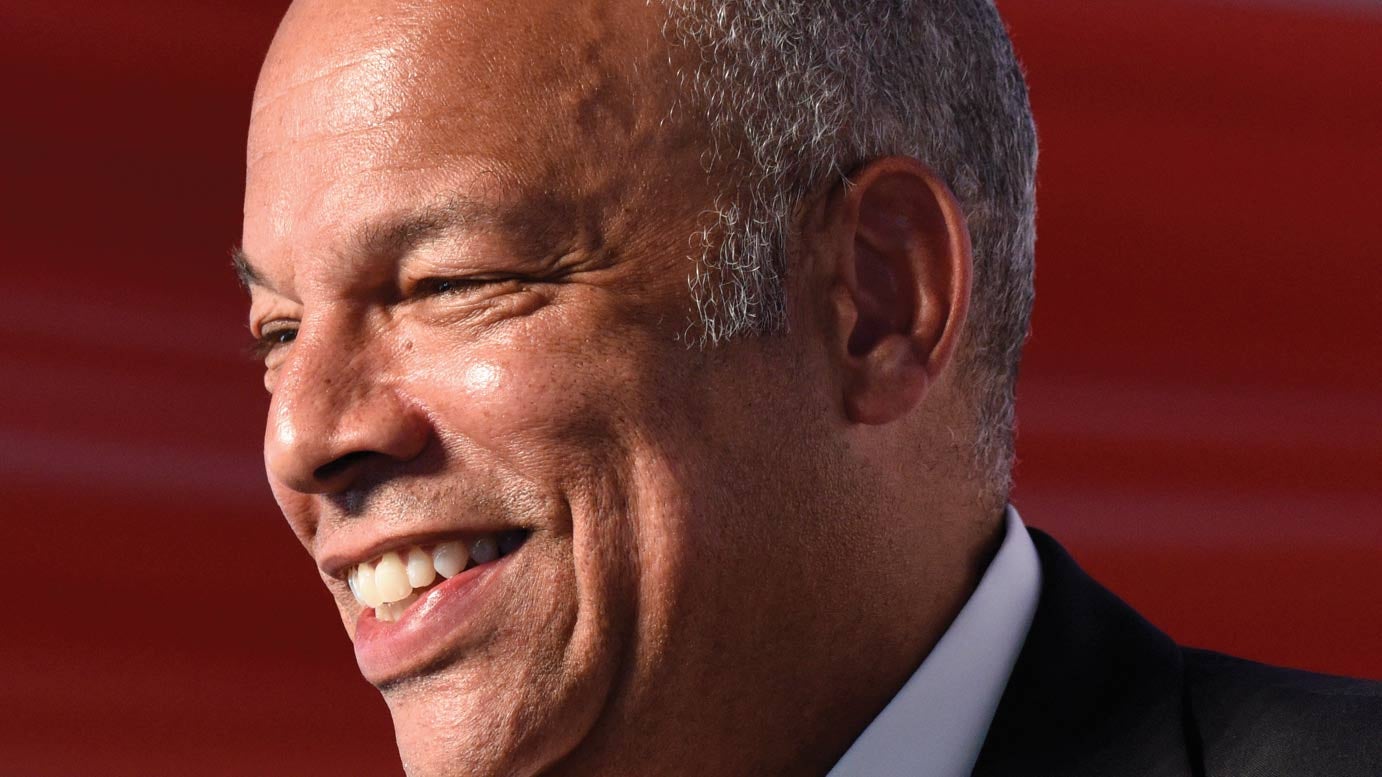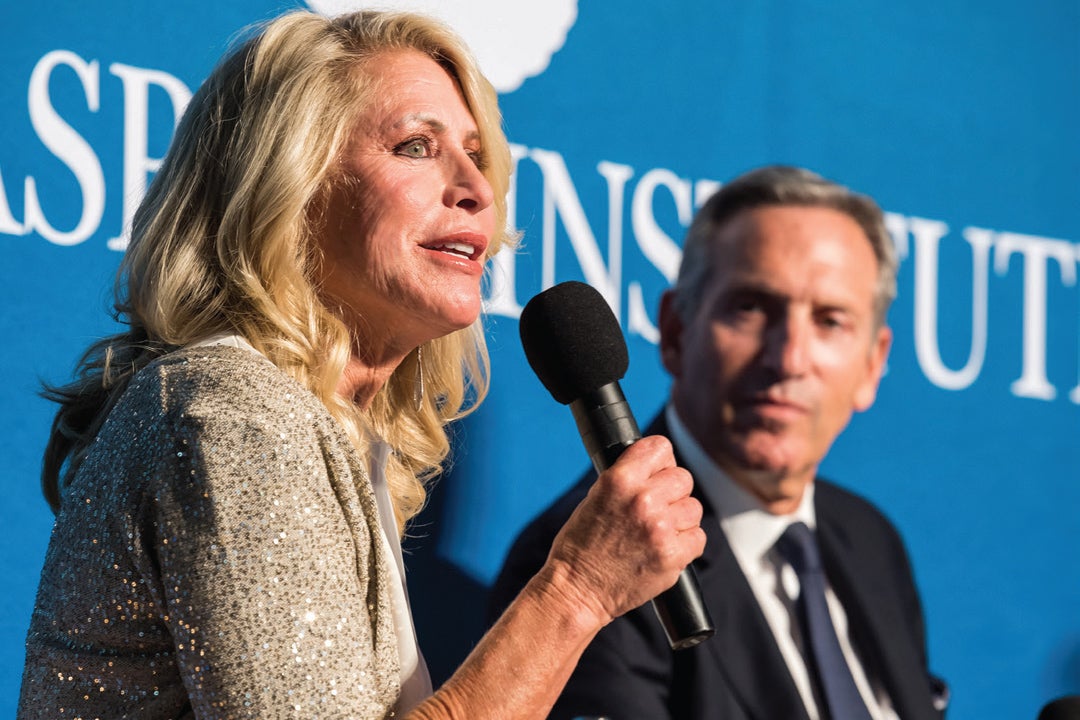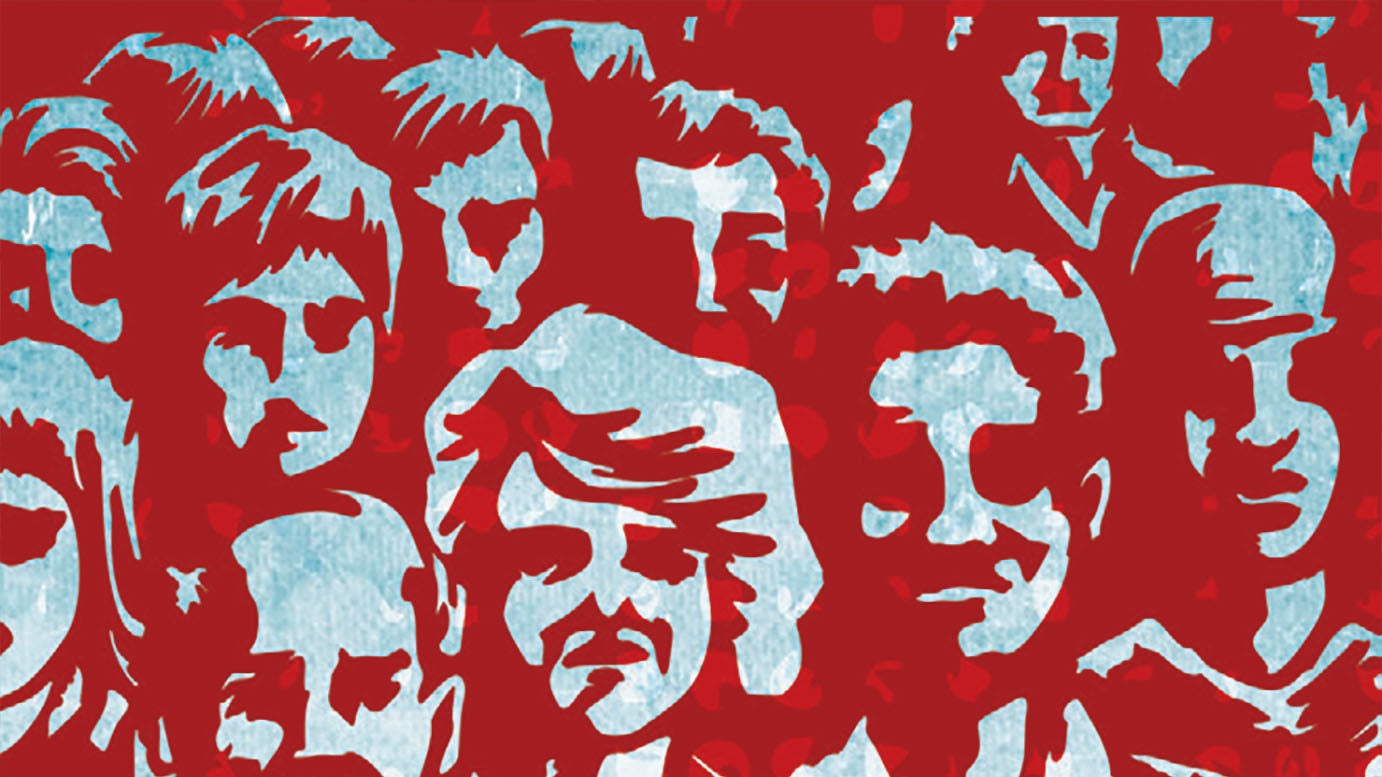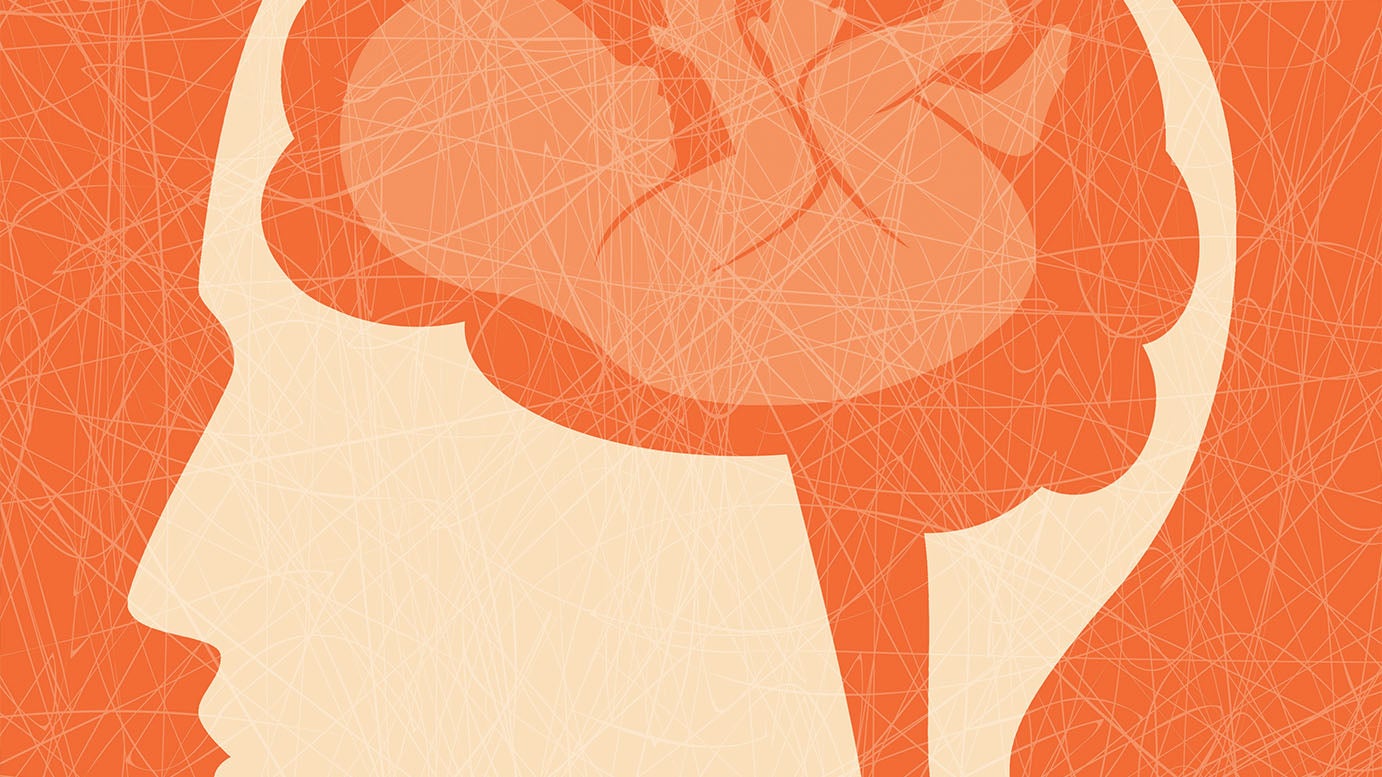On the Cover
Clockwise from top left: John Kerry, Mitt Romney, Drew Gilpin Faust, Susan Rice, Caitlyn Jenner, DeRay Mckesson, Joe Biden, Newt Gingrich, Loretta Lynch, Laura Bush, Bryan Stevenson, Christine Lagarde
The Project Play Summit emphasized health, inclusion, and equal access to sports across the nation.
The United State of Women Summit turns inspiration into action.
At the Aspen Security Forum: Global in London, FBI Director James Comey spoke about the digitalization of terrorism.
This Summer, hundreds of the world’s most exciting medical experts, politicians, business leaders, journalists, academics, and artists flooded the Institute’s Aspen campus to discuss the ideas that are changing the planet.
The festival started off with Spotlight Health, which showcased the most exciting developments in health, wellness, and brain science.
For four years, the newly renamed Resnick Aspen Action Forum has brought together hundreds of determined and creative leaders from across the Aspen Global Leadership Network and the planet and given them heavy doses of inspiration and support—and secured specific promises from each participant to do nothing short of change the world.
This year’s Forum, whose theme was Leading Toward Justice, featured remarks by Bryan Stevenson, of the Equal Justice Initiative. Many of the 2016 action pledges addressed justice—from breaking up lawless gangs in Latin America to establishing a truth and reconciliation collaborative focused on America’s history of slavery.
The Aspen Security Forum is the country’s premier platform to discuss threats to the United States. Officials including White House counterterrorism adviser Lisa Monaco, CIA Director John Brennan, and Homeland Security Secretary Jeh Johnson examined internet radicalization, the surge in European terrorism, Russian cyberattacks, and nuclear foes. Zach St. Louis goes behind the scenes and finds that with national threats dispersed across many mediums, conducted in secret, and often with no particular state backing, it is critical that intelligence agencies and policymakers work together on 60 security policy.
Howard and Sheri Schultz led a public conversation about the roles of compassion and principle in leadership. The Starbucks CEO, Howard Schultz, explained how a coffee company could have a conscience. And Sheri Schultz described the responsive-giving model she has created for the Schultz Family Foundation, which is as strategic as it is generous.
The 2016 election cycle has been unprecedented—upending conventional wisdom, bucking trends, and at times defying belief. Social media, extreme voices on cable TV, and intractability in Congress have all polarized the electorate and made politics seem like a blood sport rather than a platform for civil action. And when fear and resentment drive the conversation, we all lose. It’s no wonder more and more Americans consider themselves independents. Dan Glickman looks at what the major parties need to do to resonate with voters—rather than drive them away.
Ever since the Supreme Court effectively gutted the Voting Rights Act, the United States has experienced renewed interest in electoral systems. While some states are experimenting with automatic or online registration to increase voters’ ballot access, many others are throwing up barriers—from strict voter-ID laws to a dearth of polling places—that prevent easy voting access. But Michael Klein says there’s a single, simple solution: a new amendment to the Constitution.
New neuroimaging studies reveal the potent changes that occur in new parents’ brains that propel them to care for their infants—often at the expense of their own well-being. But such a fundamental reorganization of adult brain behavior is also a time of distinct vulnerability. Some parents may have the opposite reaction to these changes—and respond poorly, get overwhelmed, or become depressed. Sarah Enos Watamura explores how new science could help those adults by igniting their parenting brains.
